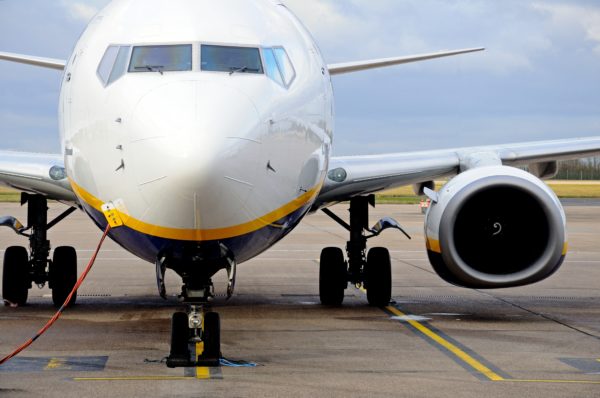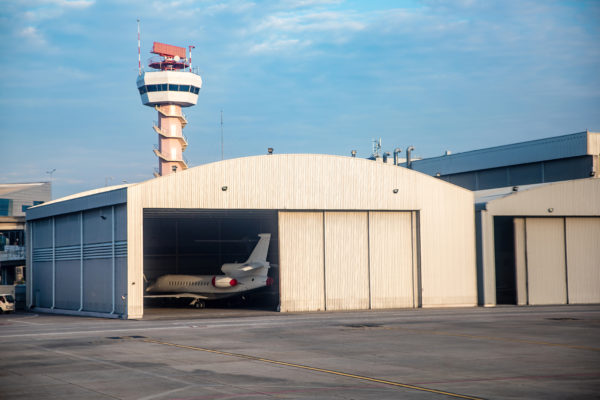Having an aircraft is something everyone would probably dream of. Aside from having the luxury and privilege of flying in and out of your town or country, it also provides comfort and allows you to save time in booking flights.

While there are many benefits of traveling on a private plane, there are also great responsibilities that come with it. Whether you’re the owner or not, you need to take good care of it and know how to properly store your aircraft when it’s not being used to ensure that it’ll stay in good shape. If you don’t know how to do it yet, here are some tips that can help you:
Choose The Right Type Of Storage
The first thing you’ll have to decide when storing your plane is where you should store it. If you’re wondering where you can keep your plane when you’re not using it, here are two options for you:
- Hangars
A hangar is a more expensive but safer option, especially when storing your plane for a long period. You can either purchase or rent a hangar for your airplane to keep it secure in all types of weather. Although it’s expensive, it’s a much safer option as it can offer more protection to your airplane, especially during strong winds and extreme weather conditions.

There are two main types of hangars – shared hangars and T-hangars. You can choose between a large or small aircraft hangar, depending on the size of your plane. If you want a cheaper option, you can also choose a shared hangar. However, your aircraft may be prone to minor accidents and bumps caused by the other airplanes you’re sharing the hangar with.
If you want exclusive storage for your airplane, you can choose T-hangar. It could be a better option as the space will be saved entirely for you, and you’ll avoid dents, scratches, and other damage that can be caused by other planes. But whether you choose a shared or a T-hangar, it can surely provide extra protection to your airplane, which means it may be worth the money you spend on it.
- Tie-down
A three-point tie-down is the most common type of tying down an aircraft. It involves fastening both the wings and the tail of your plane to attachments placed in the aircraft parking lot. The Federal Aviation Administration recommends using anchors that can resist up to 3,000 pounds when tying down an airplane. It’s best to seek the help of those who work at the airport to ensure that you’re using the right equipment.
Tying down is considered the cheaper option in storing an airplane and can effectively keep it in place. However, this may not be the best option if you plan to leave your plane for too long. Some risks can damage it if left exposed to different environmental elements.
Aside from snow and wind, it may not be advisable to tie down your plane outside during summer as your aircraft will be exposed to sunlight, which can damage its exteriors. In worst cases, if other parts of your plane suffer damage, you’ll need to have it repaired. The repair cost may outweigh your savings from paying for a hangar fee when that happens.
Talking to other pilots can help you decide whether it’s advisable to tie down your plane in your area. They can also help you determine the average costs of repairs should your plane get damaged when tied down. It’s always advisable to ensure that your plane is securely and properly fastened before leaving it.
Maintain Your Airplane Properly
When storing your aircraft, you should keep the engine in good working condition through proper maintenance. Airplanes are built to be used regularly. So, when they’re stored, you should still regularly check and take them up at least once a week for thirty minutes to one hour to prevent any engine problem. One of the common problems you need to watch out for is rust and corrosion. You can check the FAA’s handbook on Corrosion Control for Aircraft to know the preventive maintenance for corrosion-prone areas of an airplane.
Unfortunately, you can’t avoid rust, especially when you’re not using your plane for too long. Rusts are formed when engines aren’t flown, so the waters from the combustion process don’t get to evaporate. But apart from not being used, rust is also generated in aircraft when they’re not properly stored. So, you should make sure that you prevent it from happening by using preservative oils to protect your airplane’s engine. Using preservative oils can help protect metal parts and are a great barrier against rust and corrosion.
Conclusion
Regardless of why you want or need to store your airplane, it’s always best to plan and ensure that you’re keeping it in the right place. Storing your plane properly will be beneficial in the long run as you can avoid further expenses from having it repaired. You should also anticipate the storage period to help you identify which type of storage is best for your plane. Lastly, don’t forget to regularly check and clean your aircraft while it’s stored to ensure that it stays in good shape and is ready when you need to use it again.



